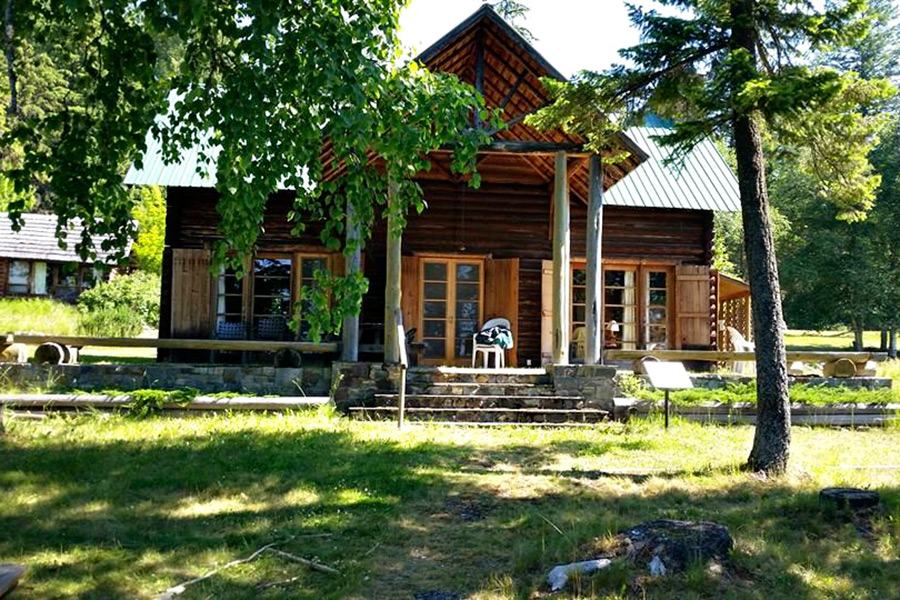The National Park Service has taken possession of an historic Lake McDonald cabin that once belonged to a U.S. senator.
Now Glacier National Park is working with the Glacier Institute on possibly turning the historic Burton and Lulu Wheeler Cabin at the head of Lake McDonald into an education center, according to park spokesperson Denise Germann.
The 1.2-acre parcel of land includes 200 feet of shoreline and has four cabins and a few outbuildings. According to the Park Service, the main cabin was built in 1942 and was added to the National Register of Historic Places in 1998. In 1947, Lulu Wheeler, the wife of U.S. Sen. Burton Wheeler, made a deal with the Park Service to give the land and buildings to the government when the last of her six children died. Earlier this summer, Marion Wheeler Scott died at the age of 89.
Burton Wheeler was born in Massachusetts in 1882 and, according to legend, ended up in Montana purely by chance and bad luck. After graduating from the University of Michigan with a degree in law in 1905, Wheeler headed west in search of work and stopped in Butte. While there he was coerced into a game of cards and subsequently lost all of his money. Penniless, he took a job at a local law office.
Wheeler entered politics in 1909 and climbed the ranks, serving in the Montana Legislature and eventually becoming U.S. Attorney for the state of Montana. In 1922 he was elected to the U.S. Senate as a Democrat and served for 24 years. Two years into his Senate career, Wheeler was even tapped to be the vice presidential nominee for the Independent Progressive Party. Years later, Franklin D. Roosevelt asked him to be his running-mate in 1940, but Wheeler turned him down because he didn’t agree with FDR’s interventionist policies overseas.
In 1915, the Wheeler family made their first visit to Glacier National Park, spending three weeks at the Fish Creek Campground. The family quickly fell in love with the area and a few years later they purchased a cabin on the north end of Lake McDonald, spending their first summer on the site in 1917.
Even when he was senator, Wheeler would spend his summers on Lake McDonald. As chairman of the Senate’s Indian Affairs Committee, Wheeler often used the camp to host meetings with members of the Blackfeet Tribe.
Wheeler’s granddaughter, Frederica Wheeler-Johnson, 73, first came to the cabin as a child and spent time there every summer until this year. Wheeler-Johnson said she remembers spending summers boating on the lake and riding horses in the nearby woods.
Wheeler-Johnson, who is on the board of the Glacier National Park Conservancy, said it was hard to leave the cabin during her final visit in July.
“It was just terrible to leave, it’s where we found our love of Glacier and Montana,” she said. “It’s a good story and a sad story. It’s good because our family enjoyed nearly 100 years there, but it’s sad because it’s all over.”
Germann said the Park Service is still working with the Glacier Institute on how to use the building, but it is possible it would be turned into an education center. She said it’s too early to know when it would be open.
“It’s a significant piece of property in the park and we’re looking at ways to preserve it into the future,” she said.
